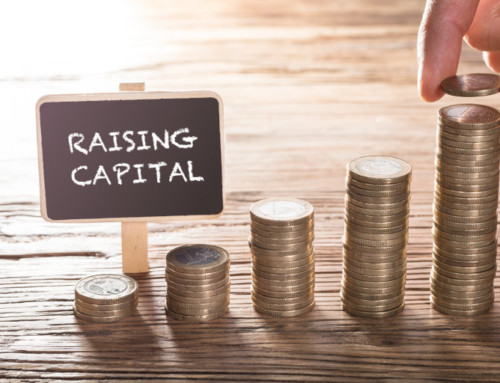As your startup continues to grow, it’s inevitable that you’ll want to secure venture funding to continue on an upward trajectory with your business. While angels are known for cutting checks up to the $100,000 range, VCs will hand over millions if you have the right business model.
For this reason, a venture capitalist or VC firm, is perfect for highly-scalable businesses seeking massive growth capital.
However, just because you think you have a great idea, even if your idea has been battle-tested and the concept proven, that doesn’t mean they’ll invest in your business. Securing VC funding is notoriously difficult. There’s a process that needs to be followed, information and answers to questions that you need to have at the ready before delivering your pitch.
This 5 point checklist will help you decide if this form of funding is suitable for your business, help you seek out the right type of VCs, and finally help you determine the best way to approach your initial meeting with them.

Snap Inc. has raised billions in VC funding
Is the business right for VC funding?
Most inexperienced founders believe they have the best idea ever, and feel investors will certainly want to line right up to give them money. While the business may be good, the odds are heavily swayed against it being in contention for venture capital funding.
In reality, very few businesses who apply are actually in need of what VCs can offer – and what they’ll most certainly want in return for their investment. Small businesses, for instance, are a very poor candidate for VCs – both from the fund-seeker and the investor’s standpoint.
VCs want investments that need hundreds of thousands or millions in funding, that are set on the precipice of a major growth spurt, and to which the possibility of a massive return on their capital seems inevitable. Market size is key here.
If the market you service isn’t massive, promising millions in profits, you’re not looking for a VC. You’re looking for an eager angel investor.
Tune into potential VC investor’s fund cycle before applying
While VC investors do have millions and even billions of dollars to invest at any given time, their available funds do run out at different periods throughout the year. At least this is the case with many VC funders out there. This is because they never know from one week to the next just how much available cash they’ll end up investing when meeting with different business owners.
Let’s say the funder you’ve scheduled a meeting with has already completed three major rounds of Series A deals this quarter, each for $250,000,000 each. The fund may only have ~$750,000,000 to spare each quarter, meaning that even though they may still meet with you to hear your offer, they wouldn’t be able to invest even if they want to.
This can make for a huge time waster. If your idea is just that great, the firm or private VC investor may help you find other investors, or go out of their way to liquidate more funds for you – but it’s unlikely. It’s up to you to understand each VC firm’s funding cycle ahead of time. What do they invest each quarter – each year?

photo credit: Eli Tucker / Flickr
Figure out how to get a warm introduction
This is perhaps one of the most unfair aspects of securing capital funding from a VC. Most don’t appreciate founders who stalk them wherever they go, harass them on social media, and hang out in their lobby desperately trying to get a meeting. Much like two strangers passing in the night trying not to make eye contact; a VC will be much more receptive to you if someone they know introduces you to them.
Sometimes you can make a meeting happen through being tenacious. This is the exception rather than the norm, though. They want you to understand their expectations ahead of time.
Most VCs have realized through experience that a lot less of their time is wasted when a contact they trust brings a viable investment opportunity to them, rather than setting up meetings with founders that likely haven’t done their research before approaching them for funding.
Can you pass the “first date test” in meetings with VC investors?
This might sound like a tongue-in-cheek type of joke, but it isn’t. When we go out on a date with someone, there’s no guarantee there will be a second date, In fact, second dates don’t normally happen very often, on average, throughout a person’s dating life.
When it comes to securing a VC investor in your corner, there’s much more to the process than you’ll see on TV’s Shark Tank. The handshake doesn’t happen the first meeting. The check won’t be cut for some time. VCs want to get to know you first, see how you do business, they want to meet your staff and see how you react.
VCs don’t make gut-only decisions. They want to mitigate risk in their minds before taking the plunge. While an angel might invest $10,000 in a risky idea because they believe in the founder; a VC can lose (and already has lost) millions if they don’t vet you religiously before writing that first check.

Term sheet and due diligence
Once they’ve actually expressed interest in your idea, it’s time to get down to brass tacks. They’ll give you a term sheet outlining the basics of the deal they want to sign with you; provisional on due diligence, which can take months after the term sheet is read and negotiated with your attorney(s). Voting rights, stock options, investor rights, and your company’s valuation (as they see it) will all be laid out in the term sheet.
Though you’ll need an attorney to go over this document with a fine-toothed comb, it’s important that you understand what you’re looking at too.
After the terms are agreed upon, financing documents will be drafted and the VC will move forward with the due diligence process, turning over every rock in both yours and your partner’s histories to make sure there are no big surprises in your past, or the company’s past, that can hamper them getting their ROI.
Due diligence can take up to 3 months for a new startup, or as little as two weeks for a later stage startup.
Be prepared with all financials, option plans, employment agreements, intellectual property materials, contracts, etc. Everything you think of will be asked for as part of the D.D. process. It is very typical, and not at all personal. This is what it takes when you are attempting to raise millions of dollars from VCs.
That’s it for this 5 point VC funding checklist. The points above are among the most important considerations you’ll need to check off your list. Keep browsing the site for even more information.







